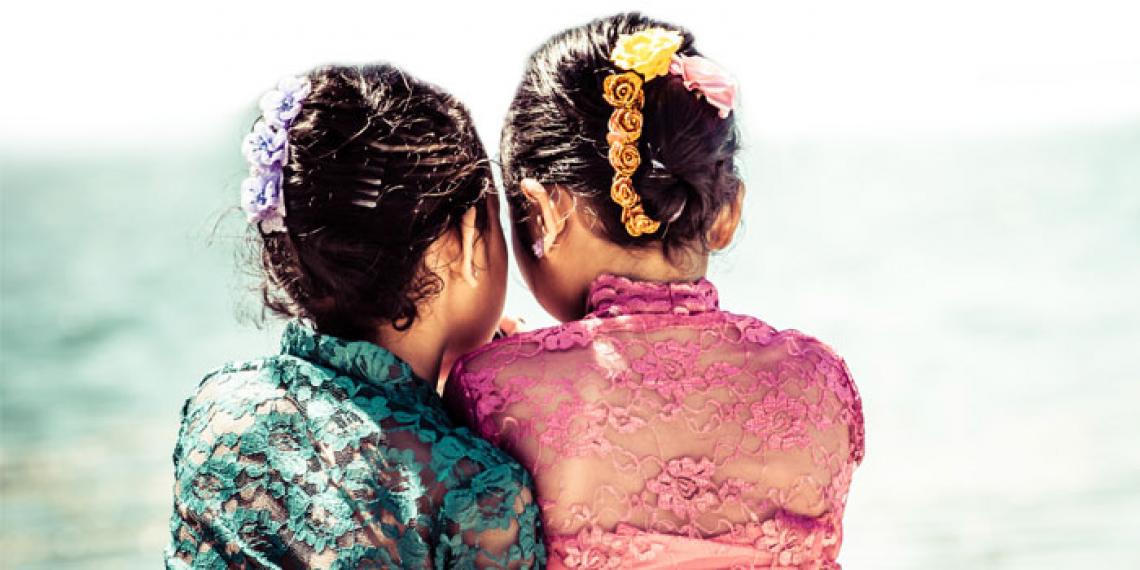International Day of the Girl Child

The typical Kiwi childhood is golden in our memories. Jandals, stubbies, swing ropes, swimming holes, What Now, fish ‘n chips ... But how typical is it really? How many of us lived in endless summer, free of school bullies, electric fences and an irrational fear of Thingee?
The International Day of the Girl Child is celebrated this year on October 11, and it’s a reminder that not every Kiwi kid gets the childhood they deserve. Shakti, a refuge for ethnic women in New Zealand, is promoting the day to highlight the veiled childhoods of some of our girls.
Shockingly, up to 50 per cent of Shakti’s crisis work is with girls forced into underage marriages. ‘It’s surprisingly prevalent in migrant communities,’ says Shakti spokesperson Polly Peña, who recently helped set up a safe house in Wellington.
‘On my first day working for Shakti, I got a call from a girl saying that her parents were sending her off to get married that night. This was a Kiwi girl who spoke English, and this was happening to her.’ In this case, Shakti was able to help the girl escape. The refuge works closely with Child, Youth and Family and other governmental and community groups to provide ongoing help for these young women, who suddenly find themselves without a family or community.
When a girl is forced into an underage marriage, she is expected to leave school, run a household and start having children. Migrant women in abusive marriages face added layers of complexity, which make it almost impossible to ask for help.
‘I received a call from someone who, in very broken English, explained that she had five minutes away from her husband and she needed to escape,’ says Polly. ‘So I told her we would come and get her, and asked her where she lived. But she had no idea of her address or where she was. Women can’t get help and it’s for such simple reasons, like they don’t know how to call the Police.’
Shakti teaches life skills to the women who come to them, which can range from getting a driver’s licence and learning English, to helping them learn to tell the time and catch a bus.
Polly is of Filipino descent, and says it’s not only migrant men who abuse their women. ‘In my community, domestic violence is very hidden. Filipino women are promised the world when they come to New Zealand to marry Kiwi men. They are promised education and freedom, but for some, they get abuse.’
‘Overwhelmingly, extreme poverty and deprivation continues to wear a female face,’ says Chris Frazer, social justice advocate for the Salvation Army’s Social Policy and Parliamentary Unit. She is working with Shakti to promote the International Day of the Girl Child. ‘We are all made in God’s image. And girls—as well as boys—deserve the chance to grow and thrive in the knowledge they are loved, respected and valued,’ says Chris.
‘October 11 gives each one of us the opportunity to read, reflect, pray and above all, to act to bring violence, harmful judgment and indifference to an end.’
by Ingrid Barratt | (c) 'War Cry' magazine, 4 October 2014, pp3.
You can read 'War Cry' at your nearest Salvation Army church or centre, or subscribe through Salvationist Resources.
